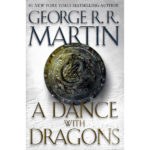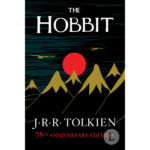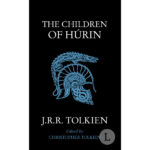Animal Farm is a satirical allegorical novella by George Orwell, which explores the themes of power, corruption, and betrayal through the lens of a group of farm animals who overthrow their human farmer to create a utopian society. The story serves as a critique of totalitarianism, particularly the Soviet Union under Joseph Stalin, and is widely regarded as one of the most influential and enduring works of political literature.
BOOK INFO
version: CLASSIC, EBOOK, AUDIOBOOK
number of pages: 128
literary movement: DYSTOPIAN
literary genre: DYSTOPIAN FICTION
1st edition: 1945
years of writing: 1943 - 1944
SUMMARY
The narrative begins with Old Major, a wise and respected pig, who shares a dream of a farm where animals live free from the tyranny of their human oppressors. Inspired by this vision, the animals, led by the pigs Snowball and Napoleon, revolt against their human owner, Mr. Jones, and seize control of the farm. They establish a set of guiding principles called Animalism, which emphasizes the equality and unity of all animals.
Initially, the animals work together to build their newfound society, and the farm thrives under their collective efforts. However, the pigs, who have taken on the roles of leaders, begin to consolidate power and manipulate the other animals to serve their own interests. The rivalry between Snowball and Napoleon comes to a head when Snowball is chased off the farm, allowing Napoleon to assert his authority unchallenged.
Under Napoleon’s rule, the original ideals of Animalism are gradually eroded, and the pigs become more like their human counterparts, exploiting the other animals and engaging in trade with neighboring farms. The famous line, “All animals are equal, but some animals are more equal than others,” epitomizes the corruption of power and the betrayal of the initial principles of the revolution.
As the story unfolds, the farm’s situation deteriorates, and the utopian dream of Old Major is shattered by the harsh reality of corruption, inequality, and betrayal. The novel ends with the pigs fully embracing their human-like behavior and appearance, walking on two legs, and making deals with their human neighbors, while the other animals look on in disillusionment.
Throughout Animal Farm, Orwell effectively uses allegory and satire to convey the dangers of unchecked power and the ways in which revolutions can become corrupted by the very forces they sought to overthrow. The novel serves as a cautionary tale, illustrating how the pursuit of power can lead to the erosion of ideals and the eventual betrayal of those who once fought for change.
MAIN CHARACTERS
Old Major
An old, wise, and respected boar, Old Major inspires the rebellion with his vision of a utopia where animals live free from human exploitation. He dies shortly after his speech, but his ideas form the basis of the rebellion.
Napoleon
A large, fierce-looking Berkshire boar, Napoleon is one of the leaders of the rebellion. Cunning and power-hungry, he eventually becomes the farm’s dictator, using manipulation, propaganda, and violence to maintain control.
Snowball
A smart and charismatic pig, Snowball is another leader of the rebellion. He is more idealistic than Napoleon and initially works to improve the farm, but he is chased away by Napoleon and becomes a scapegoat for any problems that arise.
Squealer
A small, fat, and persuasive pig, Squealer is Napoleon’s mouthpiece, using his skills in propaganda and manipulation to control the other animals and justify the pigs’ actions.
Boxer
A loyal and hardworking cart-horse, Boxer is the farm’s strongest and most dedicated worker. He believes in the cause of the rebellion, but his unquestioning loyalty and naivety make him vulnerable to exploitation by the pigs.
Clover
A maternal and caring mare, Clover is a close friend of Boxer and often acts as a voice of reason among the animals. She senses the pigs’ corruption but is unable to articulate her concerns effectively.
Benjamin
An old, cynical donkey, Benjamin is intelligent but remains detached from the events on the farm. He is skeptical of the rebellion’s success from the beginning but doesn’t actively oppose the pigs’ rule.
Mollie
A vain and self-centered mare, Mollie is more interested in her own comfort than the cause of the rebellion. She eventually leaves the farm to return to a life of pampering under human care.
Moses
A tame raven, Moses represents the influence of religion, spreading tales of a paradise called Sugarcandy Mountain where animals go after death. He is tolerated by the pigs because his stories pacify the other animals.
Mr. Jones
The original human owner of the farm, Mr. Jones is a cruel and neglectful farmer. He represents the oppressive regime the animals overthrow, and his expulsion from the farm marks the beginning of their new society.
All animals are equal, but some animals are more equal than others.
GEORGE ORWELL
TOP 10 POINTS
- Allegorical Novella: Animal Farm is an allegorical novella written by George Orwell, published in 1945. It uses a group of farm animals as a metaphor to critique the events leading up to the Russian Revolution and the early Soviet Union.
- Rebellion Against Humans: The story begins with the animals rebelling against their oppressive farmer, Mr. Jones, and taking over the farm. They aim to establish a utopia where all animals are equal and can live free from human exploitation.
- Seven Commandments: The pigs, who are the most intelligent animals on the farm, create the Seven Commandments, a set of rules to guide the animals in their new society.
- Power Corrupts: Over time, the pigs, led by Napoleon, begin to consolidate power, and they increasingly resemble the human oppressors they overthrew. The famous line All animals are equal, but some animals are more equal than others highlights the hypocrisy and corruption that has taken hold.
- Propaganda and Manipulation: The character of Squealer, the pig who acts as Napoleon’s mouthpiece, represents the use of propaganda and manipulation to control the other animals and maintain power.
- Betrayal of Ideals: The novella depicts the gradual erosion of the original revolutionary ideals, as the pigs change the Seven Commandments to suit their needs and engage in deals with humans, betraying the other animals.
- Satire: Orwell uses satire to criticize the totalitarian nature of the Soviet regime under Joseph Stalin, as well as to critique the broader tendency for those in power to become corrupt.
- Simple Language and Style: Animal Farm is written in a simple, clear style, making it accessible to a wide range of readers while effectively conveying its political message.
- Enduring Influence: The novella has had a lasting impact, becoming a classic piece of literature that continues to be studied and discussed for its political themes and allegorical nature.
- Adaptations: Animal Farm has been adapted into various forms of media, including an animated film, stage plays, and a graphic novel, demonstrating its continued relevance and popularity.
MOVIE ADAPTATION
Animal Farm has been adapted into two notable film versions:
- Animated Film (1954): This British animated drama film, directed by Joy Batchelor and John Halas, is based on George Orwell’s novel. It was the first British animated feature film released in theaters. The film remains relatively faithful to the original novel, although some plot elements are simplified or modified. The movie is noteworthy for its engaging animation style and for capturing the essence of Orwell’s political satire. Despite being an animated film, it’s not intended for a young audience due to its serious and dark themes.
- Live-Action/CGI TV Film (1999): Produced by Hallmark Entertainment, this film adaptation of Animal Farm combines live-action with CGI to bring the story to life. Directed by John Stephenson, the movie features the voices of notable actors such as Kelsey Grammer, Julia Ormond, and Patrick Stewart. The 1999 adaptation takes some liberties with the original story, adding new characters and altering some plot points. This version received mixed reviews, with some critics praising the film’s visual effects and performances, while others found the changes to the story detracted from the impact of Orwell’s original message.
Both adaptations have their unique approaches to telling the story of Animal Farm and interpreting Orwell’s allegorical masterpiece. They are worth watching for fans of the novel or those interested in exploring different adaptations of classic literature.
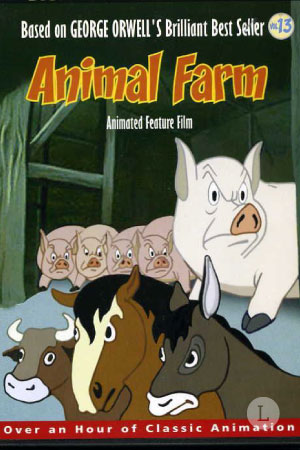
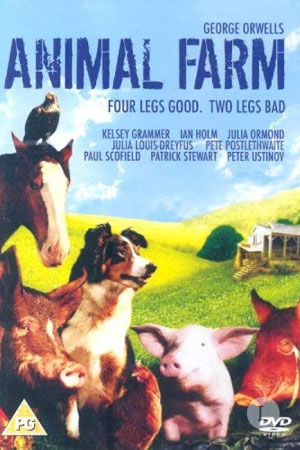
AT THE END
In conclusion, Animal Farm is a powerful and thought-provoking allegorical novella that offers a compelling exploration of power, corruption, and betrayal through the story of a group of farm animals attempting to create a utopian society. With its satirical critique of totalitarianism, incisive portrayal of human nature, and enduring relevance, the novel stands as a masterpiece of political literature and a testament to George Orwell’s literary genius.
ABOUT WRITER
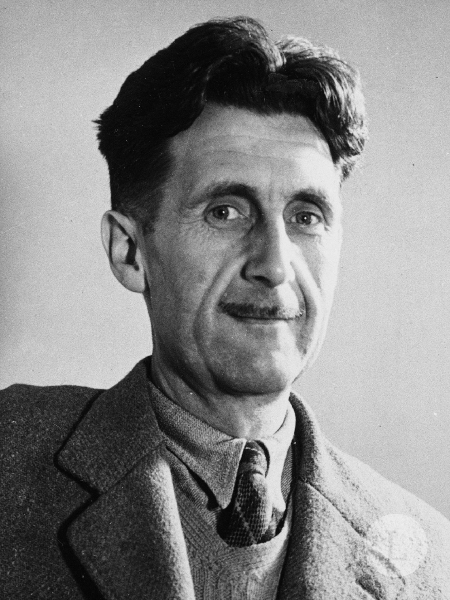
George Orwell, was an English author and essayist renowned for his influential novels 1984 and Animal Farm. Orwell’s works are characterized by their exploration of themes such as totalitarianism, social injustice, and the power of language. Through his novels and essays, Orwell left an enduring impact on literature and political thought.

